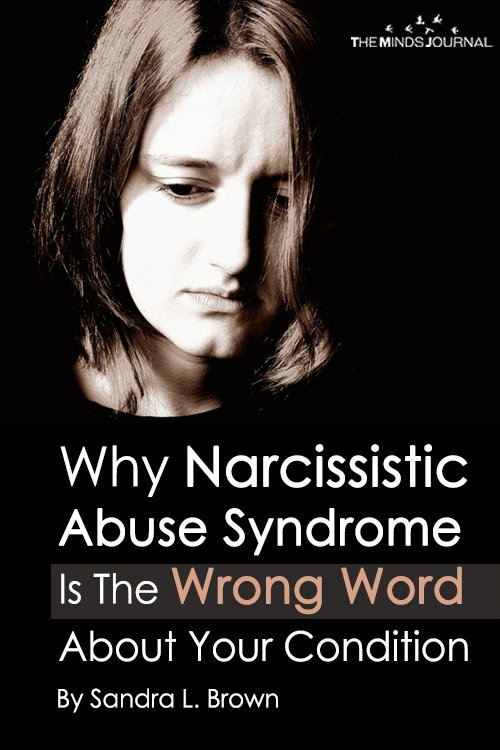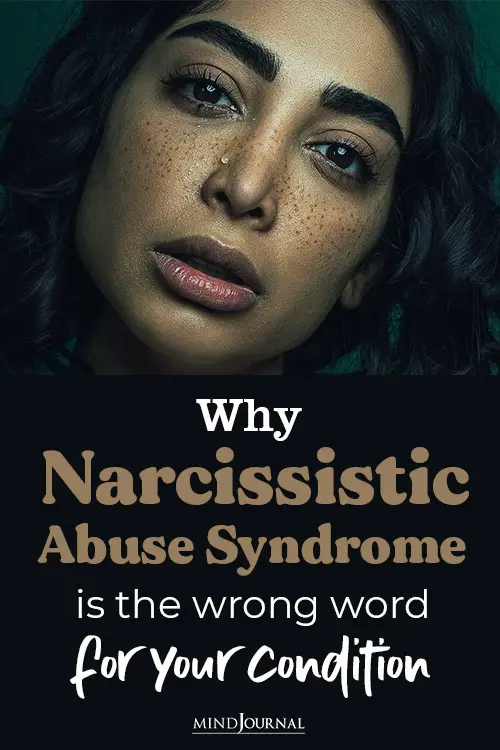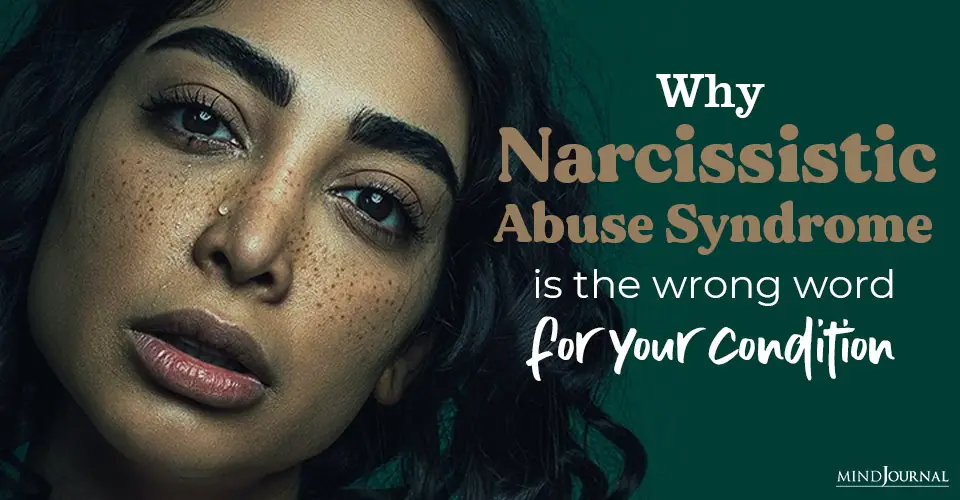Narcissistic Abuse Syndrome is the wrong word for your condition. The word syndrome indicates ‘a psychological disorder,’ In survivors of PLRs we know WHAT that psychological disorder is.
Over a decade ago, my book ‘Women Who Love Psychopaths: Inside the Relationships of Inevitable Harm With Narcissists, Sociopaths, & Psychopaths’ came out. It was noteworthy as it was the first book about the relationship dynamics and the traumatic aftermath of these ‘pathological’ relationships. As such, I named them pathological love relationships (PLRs).
Read What Is Healthy Narcissism? How Does it Differ from Self Love
I did so as I had spent my entire career working in the field of ‘psychopathology.’ What I noted in a not yet created new field of these types of relationships is that these relationships needed to be differentiated from bad, dysfunctional, even ‘just violent’ relationship because what made them so dangerous was the uncurable pathology of their partner.
Pathological love relationships
To highlight that a pathological partner is way more dangerous than just a bad partner, I named them ‘Pathological Love Relationships’ (PLRs) as a way to draw public awareness to the danger of Cluster B and psychopaths. Sadly, survivors have started calling them ‘toxic’ relationships—a broad and generic word that is like ‘dysfunctional’ that has lost its descriptor of ‘pathological’ highlighting what IS dangerous in these relationships.
But in addition to losing it’s descriptor of paying attention to a partner’s ‘pathological disorders’ survivors have made up a name for the traumatic outcomes of those relationships calling it ‘Narcissistic Abuse Syndrome’ doing a terrible disservice to victims seeking education and recovery.
Here’s why…
As the oldest agency providing clinical services to this population, we have done the most research, data collection, and surveys about this topic spanning 30 years. In one of our data collections, it was noted that 90% of survivors of PLRs have some kind of traumatic reactions from the PLR.
50-75% of those survivors with traumatic reactions will go on to develop a trauma disorder like Acute Stress Disorder, PTSD and C-PTSD. That means, most survivors have a trauma disorder in need of trauma treatment.
The symptoms of trauma disorders have been called ‘aftermath’ which is probably also unfortunate because it seems to describe something ‘unique’ to PLRs and thus has become sort of a clubby PLR-community description of what everyone experiences. While that it is true, not calling it what it is—a trauma disorder hides what survivors need treatment FOR.
Many survivors have not sought trauma-informed recovery because they don’t know they have a trauma disorder because it’s called ‘aftermath’ and they aren’t finding clinical services for what they perceive they have as ‘aftermath.’ The symptoms of ‘aftermath’ are trauma reactions, most of them are typical PTSD symptoms, and some of them are atypical which need highlighting to therapists in order to treat (which the association is doing).
Read Narcissist or Psychopath: How You Can Tell One From The Other
The concept of Pathological Love Relationships as a dangerous and damaging relationship and thus as public pathology education is NOT just about Narcissism. PLR’s encompass all of the DSM5 Cluster B Disorders and also Psychopathy. Narcissistic Personality Disorder is ONE disorder in a cluster of disorders which overlap with other disorders in the cluster and most narcissist’s ALSO have other disorders in the cluster. There problem is rarely one disorder.
Therefore, Pathological Love Relationships as a dangerous and damaging relationship include ALL the disorders in the Cluster B group and psychopathy.
- Borderline Personality Disorder
- Narcissistic Personality Disorder
- Anti-Social Personality Disorder
- And Psychopathy
Multiple articles in research indicate 60% of people with one Cluster B disorder have more than one personality disorder out of the cluster. Calling it Narcissistic Abuse Syndrome does not draw attention to the other potential disorders they also have. This doesn’t also include the other co-occurring disorders like addictions, mood disorders, and impulse control problems all personality disorders ALSO carry.
Labeling it ‘Narcissistic’ Abuse is not a complete picture that Narcissists are likely to also have Borderline, Anti-Social and Psychopathic disorders or traits of the disorders. It is poor public pathology education that doesn’t include the understanding of the overlapping conditions of personality disorders as noted in the DSM.
Additionally, while highlighting ‘Narcissism’ it leaves out public pathology education on the other disorders in the cluster forcing more fragmented public pathology education to correct the misleading of only narcissism and creating more work for those of us in public pathology education.
Read 20 Narcissistic Terms: A Glossary of Terms for Understanding Narcissism
In addition, the word ‘Syndrome’ is also misleading. The word syndrome indicates ‘a psychological disorder,’ In survivors of PLRs we know WHAT that psychological disorder is: it is a trauma disorder. So, name it in order that survivors know what they are seeking help for as a specific disorder associated with abuse from pathological persons of ALL types in the Cluster B group and psychopathy.
As the only formal association for mental health professional’s education and public pathology education, The Association formally concludes:
- The name of relationships associated with Cluster B/psychopathic partners is called ‘Pathological Love Relationships’ (PLRs) which highlights that the danger of these relationships IS the pathological condition of Cluster B Personality Disorders and Psychopathy which produces the harm in others as noted in the DSM;
- That these relationships include the disorders of BPD, NPD, ASPD, and psychopathy and not one single disorder of the Cluster B disorders;
- That the affects of the relationships are most frequently a type of trauma disorder;
- That the treatment for the effects of the pathological relationship is a specific clinical Model of Care approach that is trauma-informed, evidence-based, and trauma-specific including both traditional trauma treatment and atypical trauma treatment as established, produced, and taught by The Association.
Produced by The Association for NPD/Psychopathy Survivor Treatment, Research & Education © 2018 Written by: Sandra L Brown Sandra L. Brown, MA President of The Association for NPD/Psychopathy Survivor Treatment, Research & Education, an association for mental health professionals, Director of The Institute for Relational Harm Reduction & Public Pathology Education










Leave a Reply
You must be logged in to post a comment.